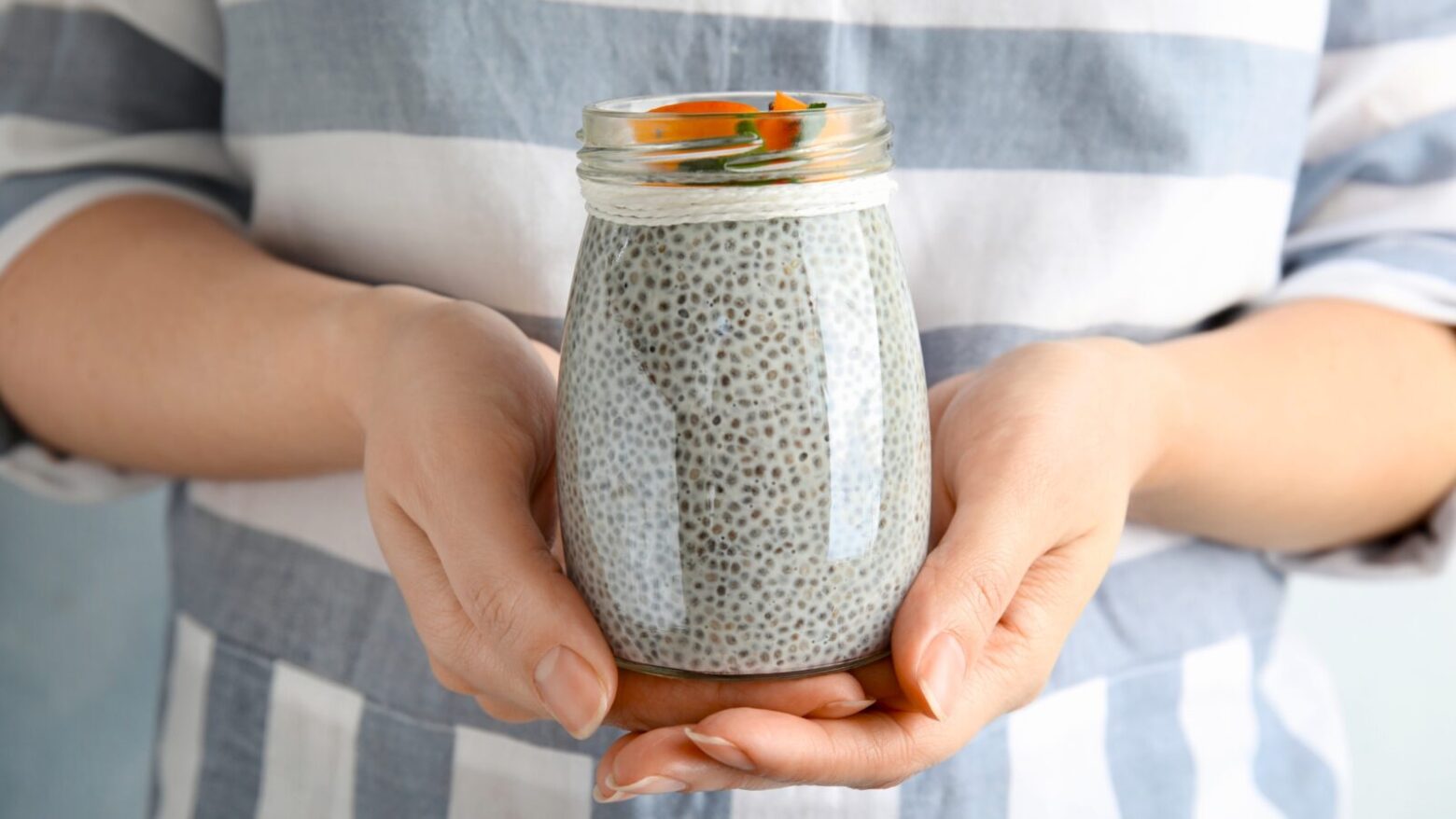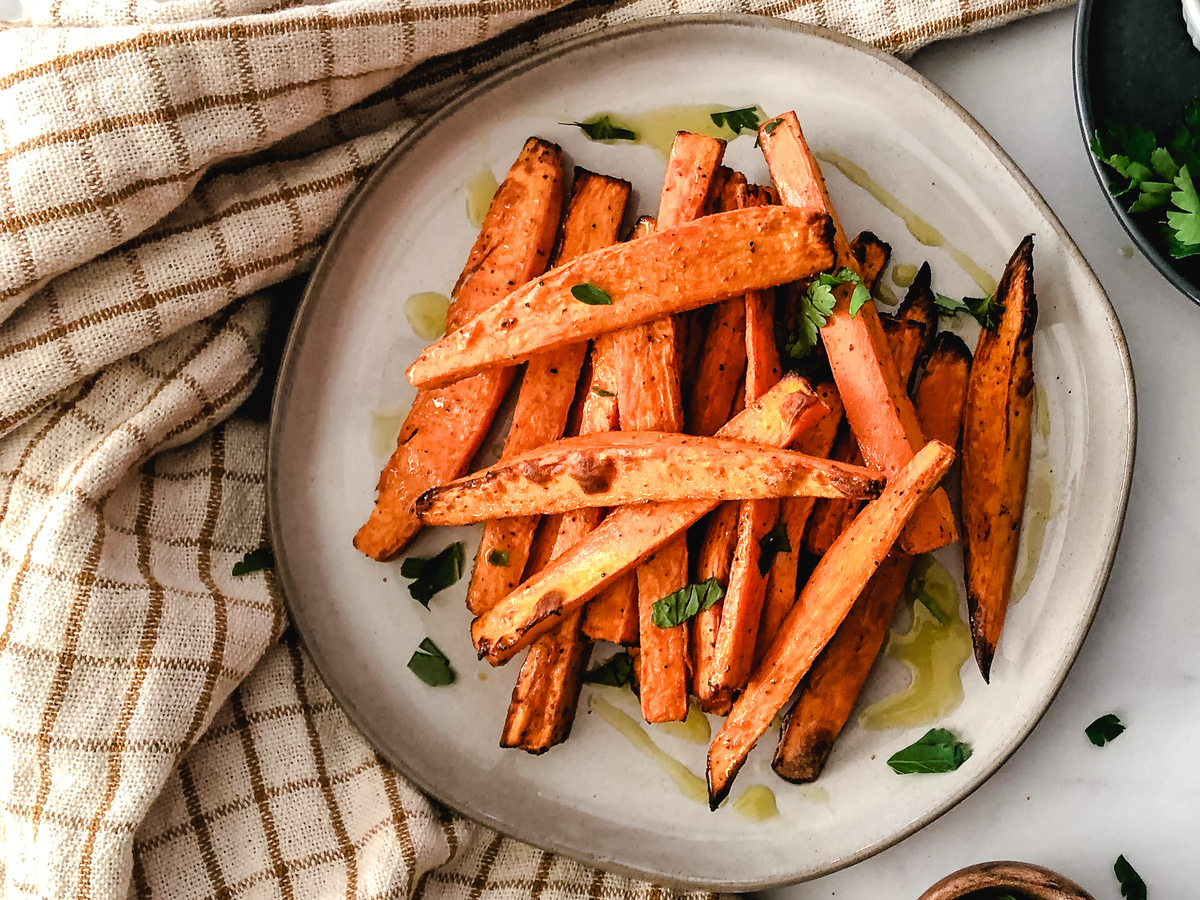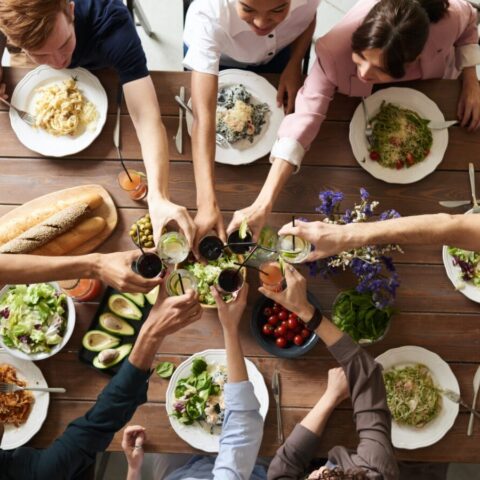Paleo or Not? Foods We Have Changed Our Minds On Over the Past 20 Years

As we celebrate 20 years of The Paleo Diet, we reflect on how our position has evolved with emerging science. Here are the biggest Paleo foods we’ve changed our minds on, and why.
Here at The Paleo Diet, we have always prided ourselves on adapting. Research is continually evolving and expanding, broadening our awareness and understanding. As such, we like to stay on top of the science to ensure that our recommendations match with the best peer-reviewed papers on nutrition.
Over the past 20 years, The Paleo Diet has made advances and adjustments to what we once believed to be true. As we stay up to date with the latest research, we remain committed to flexibility and integrity as we share our discoveries and progressive knowledge on what we once considered Paleo friendly foods.
We No Longer Allow Canola Oil
If you’ve been an enthusiast of The Paleo Diet for the last two decades, you’ll remember that in Dr. Cordain’s first book, The Paleo Diet, canola oil was permitted by way of the 2:1 omega-6 to omega-3 ratio in vegetable oils. However, our stance on canola oil has since changed as research has emerged questioning the negative impact of canola oil on health.
One of the key benefits of following The Paleo Diet is reducing chronic inflammation in the body. If left untreated, inflammation can lead to heart disease, arthritis and even Alzheimers (1). A study done in 2011 reported that both oxidative stress and inflammation were found in rats that were fed a diet with only 10% canola oil (2).
Just like corn, canola is a high demand crop, and in order to keep up with the high demand, these crops are genetically engineered to be more resistant to herbicides and pests (3), While GMO foods have been approved for human consumption, there is little data to support the long-term effects for human health. Which is one of the reasons why GMO foods—including canola oil—are not Paleo approved.
Sweet Potatoes Are Good for You After All

Once upon a time, roots and tubers like potatoes, sweet potatoes and yams, were off limits on The Paleo Diet. While white potatoes are still a no go, sweet potatoes and yams have made their way onto the Paleo-friendly food list because of a re-examination of their glycemic load (GL), and their antinutrient content.
These delicious and flavorful root veggies are not only a comfort food like its sibling the potato—which has a very high GL—both sweet potatoes and yams are considerably lower. The GL determines how much a food will increase blood sugar levels. In other words, the lower the number, the better! When fully cooked and peeled, sweet potatoes and yams have low concentrations of antinutrients.
As we make our way into the cooler, cozier months, be sure to try our version of a warming, family favorite, Sweet Potato Shepherd’s Pie.
You may be wondering about cassava—a common food choice for supplementing potatoes. Unfortunately, cassava has an even higher GL than potatoes! Cassava also contains antinutrients that are potentially toxic to humans in high concentrations (4) making this popular food choice on the list of foods to avoid on The Paleo Diet.
We No Longer Approve Diet Soda or Artificial Sweeteners
In the earlier days of The Paleo Diet formulation, there was more of a focus on the glycemic load of a food (or sweetener). While artificial sweeteners and diet sodas might have seemed like a trustworthy replacement for table sugar or classic sodas, more research has emerged showing that these enticing zero-calorie options are not as healthy as you may think.
Frequent consumers of sugar substitutes, such as aspartame and saccharin, may be at increased risk of metabolic syndrome, excessive weight gain, type 2 diabetes, and cardiovascular disease (5). With risks to one’s health that high, you’re better off drinking mineral waters or opting for fruit-infused teas.
Diet sodas and artificial sweeteners are not Paleo approved, and we don’t recommend consuming them. However, if drinking diet soda on occasion is the make or break for following The Paleo Diet, rest assured you can still enjoy it from time to time as long as you are abiding by the 85/15 rule.
Coffee Is Probably Just Fine

We used to state that coffee was off-limits, even in in moderation, and in some cases, that is still true. Despite its name, coffee bean, coffee is made from the seed of the Coffea plant—not an actual bean, so in essence, it must be Paleo, right? Not exactly.
What The Paleo Diet considers in choosing whether or not to drink coffee is how your body metabolizes the caffeine in coffee. For some, caffeinated coffee may cause jitteriness, anxiety or headaches, and for others, it can improve mental concentration, memory enhancement, and physical performance (6 , 7).
You can investigate further here to better determine if drinking coffee will be part of your TRUEPALEO™ diet, or your PaleoFLEX™ diet.
Chia Seeds Are Off the Menu
Avoiding grains on The Paleo Diet should come as no surprise as they are devoid of a variety of vitamins and minerals compared to many fruits and vegetables. Pseudo grains, such as amaranth, buckwheat and chia seeds, are no different.
Pseudo grains contain antinutrients. The most common of these offenders are phytates, oxalates, and lectins, which can cause nausea, bloating, headaches, and rashes (8).
In the book The Paleo Diet, chia seeds were not mentioned on the list of pseudo grains to avoid, which is likely due to its lack of relevance at that time as chia seeds only gained popularity in the last decade. Since we didn’t have a clear stance on it, many easily confused it for a Paleo-approved food. Though Dr. Cordain didn’t say so explicitly, chia seeds were always intended to be a non-Paleo food to avoid.
The Bottom Line
As time evolves, new science emerges, and the more research we discover, The Paleo Diet will also continue to evolve as we remain committed to understanding what is TRUEPALEO™. While we can’t promise to remain the same, we can promise our devotion to providing you with the best resources possible to live a well-nourished, well-balanced, healthy lifestyle.
References
- Playing with the fire of inflammation. (2021, April 12). Harvard Health. https://www.health.harvard.edu/staying-healthy/playing-with-the-fire-of-inflammation
- Papazzo, A., Conlan, X., Lexis, L., & Lewandowski, P. (2011). The effect of short-term canola oil ingestion on oxidative stress in the vasculature of stroke-prone spontaneously hypertensive rats. Lipids in Health and Disease, 10(1), 180. https://www.ncbi.nlm.nih.gov/pmc/articles/PMC3215974/
- Schafer, M. G., Ross, A. A., Londo, J. P., Burdick, C. A., Lee, E. H., Travers, S. E., Van de Water, P. K., & Sagers, C. L. (2011). The establishment of genetically engineered canola populations in the U.S. PloS One, 6(10), e25736. https://www.ncbi.nlm.nih.gov/pmc/articles/PMC3187797/
- Adamolekun, B. (2011). Neurological disorders associated with cassava diet: a review of putative etiological mechanisms. Metabolic Brain Disease, 26(1), 79–85. https://pubmed.ncbi.nlm.nih.gov/21327546/
- Swithers, S. E. (2013). Artificial sweeteners produce the counterintuitive effect of inducing metabolic derangements. Trends in Endocrinology and Metabolism: TEM, 24(9), 431–441. https://www.sciencedirect.com/science/article/abs/pii/S1043276013000878
- Nehlig, A. (2016). Effects of coffee/caffeine on brain health and disease: What should I tell my patients? Practical Neurology, 16(2), 89–95. https://pn.bmj.com/content/16/2/89.
- Cappelletti, S., Piacentino, D., Sani, G., & Aromatario, M. (2015). Caffeine: cognitive and physical performance enhancer or psychoactive drug? Current Neuropharmacology, 13(1), 71–88. https://www.ncbi.nlm.nih.gov/pmc/articles/PMC4462044/
- Popova, A., & Mihaylova, D. (2019). Antinutrients in plant-based foods: A review. The Open Biotechnology Journal, 13(1), 68–76. https://openbiotechnologyjournal.com/VOLUME/13/PAGE/68
Irene Jay
Irene Jay is a Holistic Health Coach and a certified Nutrition Coach from Vancouver, BC.
More About The Author




